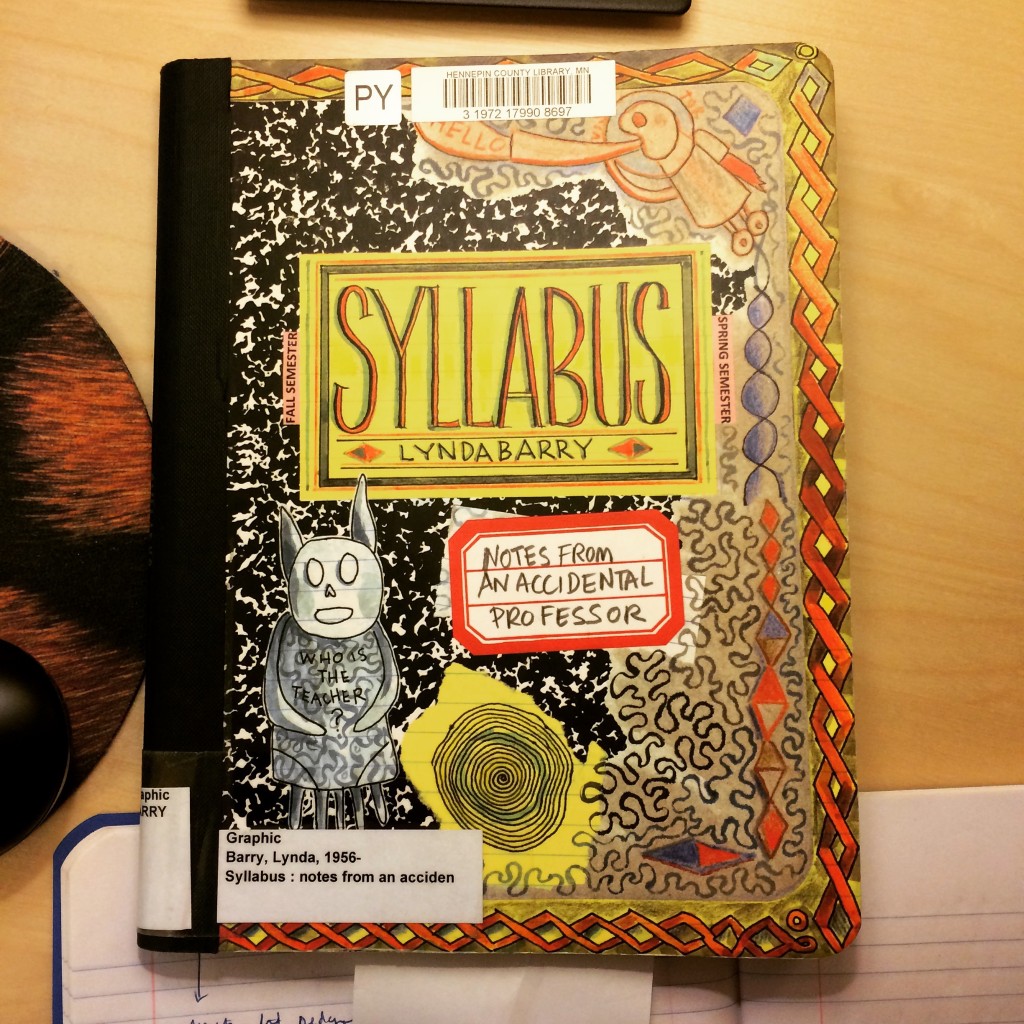Syllabus: Notes from an Accidental Professor
What?
This is a book of notes, drawings, and syllabi I kept during my first three years of teaching in the Art Department at the University of Wisconsin-Madison. This chronology is rough and mixed up in places but all kept by hand on pages of either legal pads or in standard black and white marbled composition notebooks.
Barry, 3
Format:
- A composition notebook
- Mixture of typed, hand-written text; images; photographs
- Looks like actual composition book, with doodles and notes
Content:
- Course Flyers
- A “formal” introduction/about this book, typed (most other text is hand-written)
- Fragments from Barry’s personal notebook/journal
- Discussion of Influences
- Drawings by Barry and by her students
- Questions posed throughout, usually hand-written
- Class Announcements
- Brief bits of “formal” narrative scattered throughout book, typed-up and involving descriptions of the underlying principles of Barry’s methods and her courses
- Images + minimal text about principles/methodologies of course: what is bad drawing?, on liking and not liking
- Pages of “informal”/”less formal” narrative, hand-written in cursive with doodles/images, about her class: what she had students do, the students’ experiences completing assignments
- Drawings, text (typed and hand-written), doodles/images about picking students for the class (she had prospective students complete a questionnaire)
- Assignments, including the composition notebook
- Classroom Rules
- Excerpts from students’ assignments, including quick diary exercises
- Letters to students about class, including announcements and assignments
- Reflections on failures in class and what she/students learned (I hate crayons)
- Reflections on the challenges and rewards of the drawing/thinking process that Barry is teaching
Purpose
- Share her method
- Inspire others with her passion
- Share and reflect on her experiences becoming a professor
- Reflect on big questions like, What is art? What is an image?
I really enjoyed reading this book. It was inspiring, both in terms of my own book project and my approaches to thinking, writing, and creating.
Useful for my Project?
Yes. I’m particularly interested in how she incorporates syllabi and assignments into the text. I want to do this too, but my project is not exclusively focused on my time in the classroom. In fact, it’s more focused on the time outside/beside/after the classroom. I also like her tone. She exudes passion for her topic, which is infectious. Finally, I appreciate the format. It’s an actual composition book. The second book I’m looking at is Kate Bornstein’s My New Gender Workbook, which also uses the format of a composition notebook, but only looks like one, it isn’t actually a comp book. I don’t want to use Barry’s format, but I like the idea of using an unusual format (and not just mimicking one).
